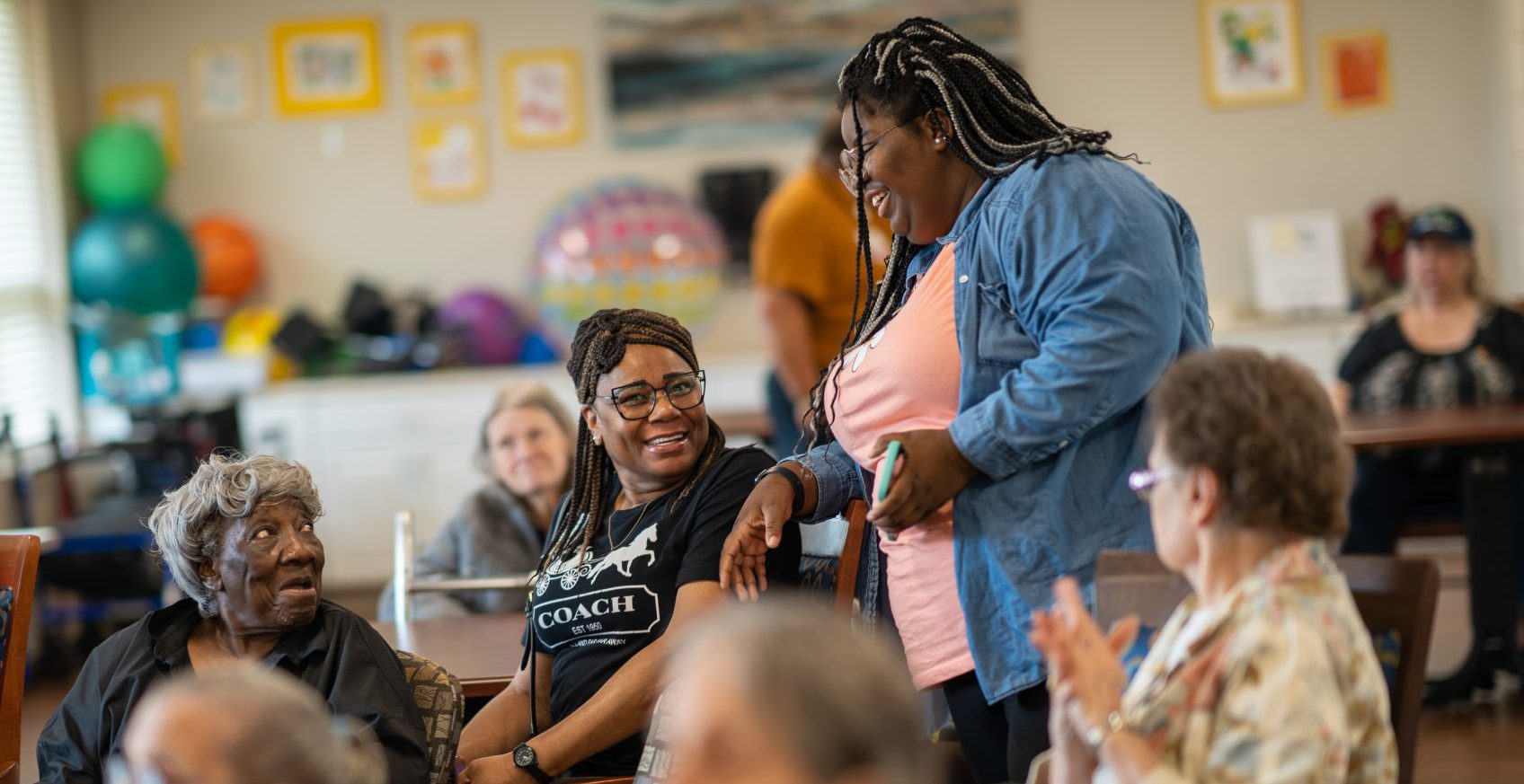Dementia Care Charlotte: Specialized Services at The Sanctuary
Dementia Care Charlotte: Specialized Services at The Sanctuary
Blog Article
Recognizing the Relevance of Specialized Memory Care Programs for Individuals With Cognitive Decrease
Specialized memory care programs are developed to deal with the distinct needs of individuals experiencing cognitive decline, such as Alzheimer's disease and other kinds of mental deterioration. These programs not just provide a risk-free and structured environment but also incorporate tailored interventions that advertise cognitive interaction and psychological wellness. Understanding the details of cognitive decline and how customized care can significantly enhance the top quality of life for both individuals and their households is necessary. The option process for the suitable program raises essential inquiries that necessitate more expedition.
Meaning of Memory Care Programs
Defining memory care programs requires an understanding of their specialized nature and purpose. These programs are designed to supply comprehensive support for individuals experiencing cognitive decrease, especially those with Alzheimer's illness, dementia, and other relevant problems. Memory care facilities are geared up with trained team who possess experience in managing the unique obstacles connected with cognitive problems.
At the core of memory treatment programs is a structured atmosphere that prioritizes safety and security, comfort, and cognitive excitement. This consists of tailored activities that advertise involvement and improve memory skills while decreasing confusion and stress and anxiety. The design of memory care facilities commonly includes safe rooms to protect against straying while motivating freedom in a secure manner.
Additionally, memory treatment programs emphasize personalized care plans that resolve the specific requirements of each local. This alternative technique ensures that emotional, physical, and social wellness are all considered, allowing for a much more rounded caregiving experience. By focusing on nurturing connections and promoting a sense of area, memory treatment programs aim not only to enhance the high quality of life for people with cognitive decrease however likewise to supply support for their families.
Key Advantages of Specialized Treatment
One of the significant benefits of specialized memory treatment programs is their capacity to create a supportive environment customized to the one-of-a-kind demands of people with cognitive impairments. These programs use team skilled particularly in memory care, guaranteeing that caregivers understand the nuances of cognitive decrease and can supply suitable support. This specific training enhances the quality of care, cultivating a feeling of protection and depend on among locals.

Additionally, the environment is created to minimize complication and maximize security, including clear signs, safe formats, and sensory-friendly spaces (Memory Care charlotte). This thoughtful layout aids individuals navigate their surroundings easily, advertising freedom while ensuring their security
Family participants additionally benefit from specialized memory care, as these programs frequently give sources and support for caregivers. This all natural strategy not just enhances the top quality of life for citizens yet additionally supplies satisfaction to family members, recognizing their liked ones are getting the most effective possible treatment.
Understanding Cognitive Decrease
Cognitive decline incorporates a series of changes in memory, assuming, and thinking abilities that can dramatically impact daily functioning. This decrease site here might materialize in various ways, such as troubles in remembering recent events, challenges in problem-solving, and damaged judgment. It is frequently connected with numerous conditions, including Alzheimer's condition and various other forms of mental deterioration, however can also result from age-related modifications, strokes, or traumatic brain injuries.
Individuals experiencing cognitive decline usually struggle with daily jobs, leading to increased reliance on caregivers and liked ones. Cognitive decline is not consistent; it can progress at different prices and vary in seriousness amongst people.
Understanding the subtleties of cognitive decline is necessary for developing efficient treatment methods. A thorough method, which consists of medical analyses and supportive therapies, can aid address the unique needs of those impacted. By acknowledging the signs and implications of cognitive decline, caregivers and households can better sustain people in maintaining Full Article their autonomy and dignity throughout their journey.
Choosing the Right Program
Picking the suitable memory care program is a vital step in resolving the challenges positioned by cognitive decrease. With different alternatives available, it is vital to think about variables that align with the person's details needs. Assess the degree of care called for, as programs vary in intensity from fundamental supervision to extensive medical assistance.
Next, evaluate the credentials and training of the team. A trained group needs to have experience in cognitive disabilities and be proficient at employing effective communication strategies. Furthermore, the program's structure is crucial; try to find a risk-free, appealing setting that encourages social communication and cognitive excitement through customized tasks.
Think about the program's ideology and strategy to care. Some programs might highlight a more all natural strategy, integrating emotional wellness with cognitive rehab, while others might focus purely on clinical interventions. Checking out potential centers can additionally offer insight right into the environment and daily regimens.
Household Participation in Care
Household involvement in treatment plays a critical role in boosting the high quality of life for people in memory care programs. Involving member of the family promotes a helpful environment that can substantially decrease the sensations of loneliness and seclusion frequently experienced by those with cognitive decrease. When households actively take part in care, they add important understandings regarding their liked one's choices, routines, and behavioral patterns, permitting caregivers to tailor treatments properly.
Moreover, household involvement urges continuity in psychological and social links, which are essential for cognitive excitement. Normal brows through and involvement in tasks produce possibilities for meaningful communications that can aid preserve cognitive features and psychological health. Families can additionally assist in promoting for their enjoyed ones, ensuring that their requirements are satisfied which treatment techniques remain in placement with their values.

Verdict
Specialized memory treatment programs are important in resolving the special needs of individuals experiencing cognitive decrease. By giving tailored care within organized settings, these programs improve safety and security, comfort, and cognitive involvement.
Report this page